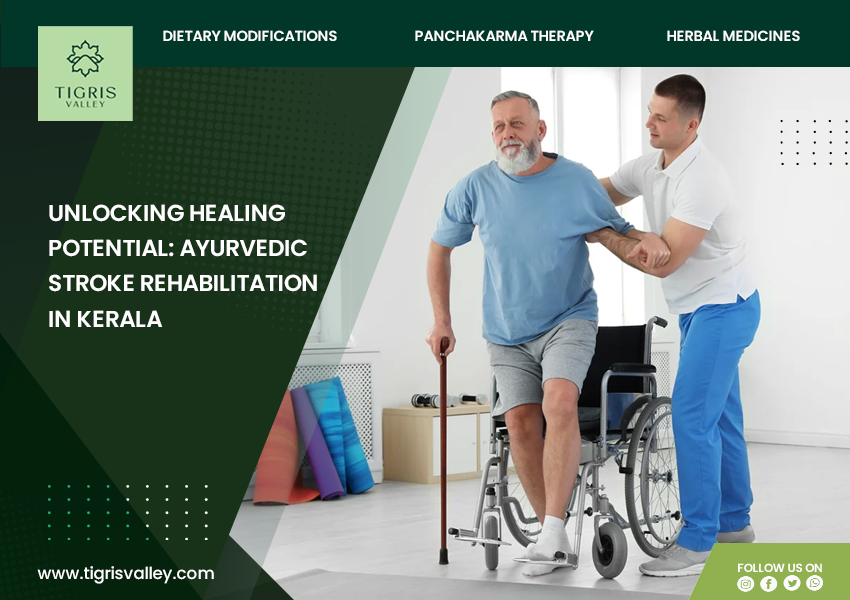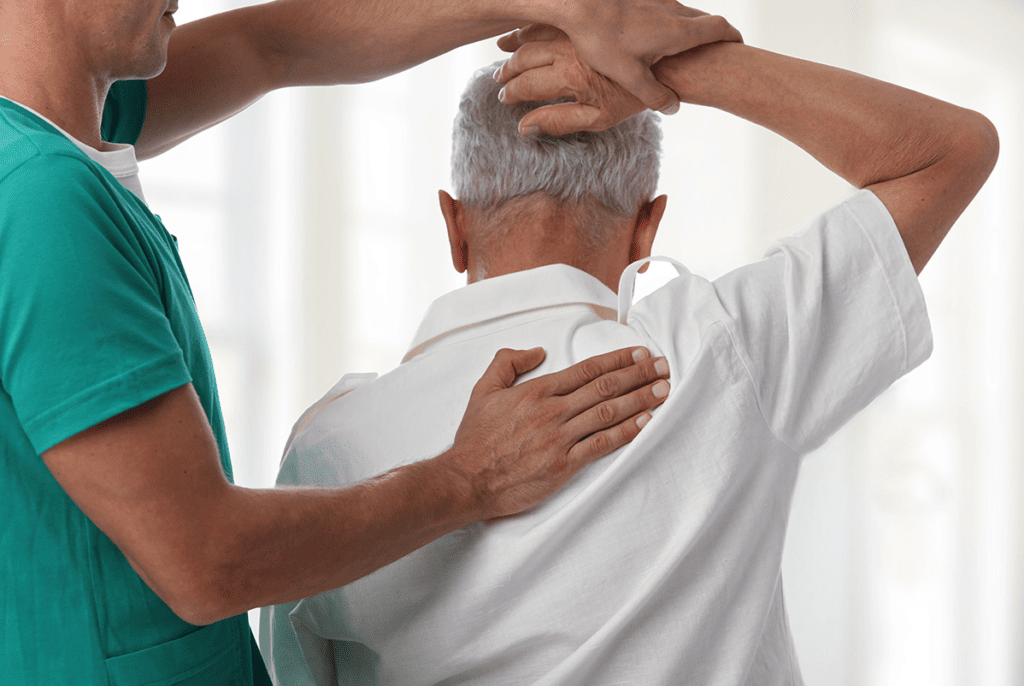
Tigris Valley, Renowned for its ancient healing tradition of Ayurveda, we offers a unique approach to stroke treatment in Kerala and rehabilitation, blending centuries-old wisdom with modern science to unlock the body’s innate healing potential.
A stroke, often referred to as a brain attack, occurs when blood flow to the brain is disrupted, leading to damage of brain cells. This interruption can result from a clot blocking a blood vessel (ischemic stroke) or from a burst blood vessel causing bleeding into the brain (hemorrhagic stroke). Regardless of the type, strokes can have devastating consequences, affecting mobility, speech, cognition, and overall quality of life.
In Ayurveda, stroke is viewed as a manifestation of imbalances in the body’s doshas—Vata, Pitta, and Kapha—as well as disturbances in the dhatus (tissues) and malas (waste products). According to Ayurvedic principles, stroke rehabilitation involves not only addressing the physical consequences of the stroke but also restoring harmony to the body, mind, and spirit.

1. Herbal Medicines: Ayurvedic treatment practitioners prescribe customized herbal formulations to address the underlying imbalances contributing to the stroke. These may include herbs known for their neuroprotective properties, such as Brahmi (Bacopa monnieri), Ashwagandha (Withania somnifera), and Shankhpushpi (Convolvulus pluricaulis), which support cognitive function, nerve regeneration, and overall brain health.
2. Panchakarma Therapy: Panchakarma, the detoxification and rejuvenation therapy of Ayurveda, plays a vital role in ayurveda stroke rehabilitation treatment. Through procedures like Abhyanga (therapeutic oil massage), Shirodhara (continuous pouring of warm oil on the forehead), and Basti (medicated enema), Panchakarma aims to eliminate toxins, improve circulation, and restore vitality to the nervous system.
3. Dietary Modifications: Ayurvedic dietary guidelines focus on nourishing the body while pacifying aggravated doshas. Nutrient-rich foods that are easy to digest, such as cooked vegetables, whole grains, and soups, are recommended. Additionally, specific spices and herbs known for their neuroprotective and anti-inflammatory properties, such as turmeric, ginger, and cinnamon, are incorporated into the diet to support the healing process.
4. Therapeutic Massages and Exercises: Gentle massage therapies, such as Abhyanga and Pizhichil (squeezing warm medicated oil onto the body), help improve circulation, reduce muscle stiffness, and promote relaxation. Ayurvedic exercises, including yoga and pranayama (breathing techniques), are also beneficial for enhancing flexibility, coordination, and overall well-being.
Kerala, often referred to as the “Land of Ayurveda,” offers an ideal setting for stroke rehabilitation, with its tranquil environment, skilled practitioners, and authentic Ayurvedic therapies. Here, individuals embark on a transformative journey toward recovery, guided by experienced Ayurvedic physicians who tailor treatment plans to address their unique needs and goals.
In Kerala, the ancient healing tradition of Ayurveda offers a beacon of hope for stroke survivors, providing a comprehensive approach to rehabilitation that encompasses physical, mental, and spiritual well-being. Through a combination of herbal medicines, treatments, dietary modifications, and lifestyle interventions, Ayurvedic stroke rehabilitation unlocks the body’s innate healing potential, allowing individuals to reclaim their lives with renewed vitality and purpose.